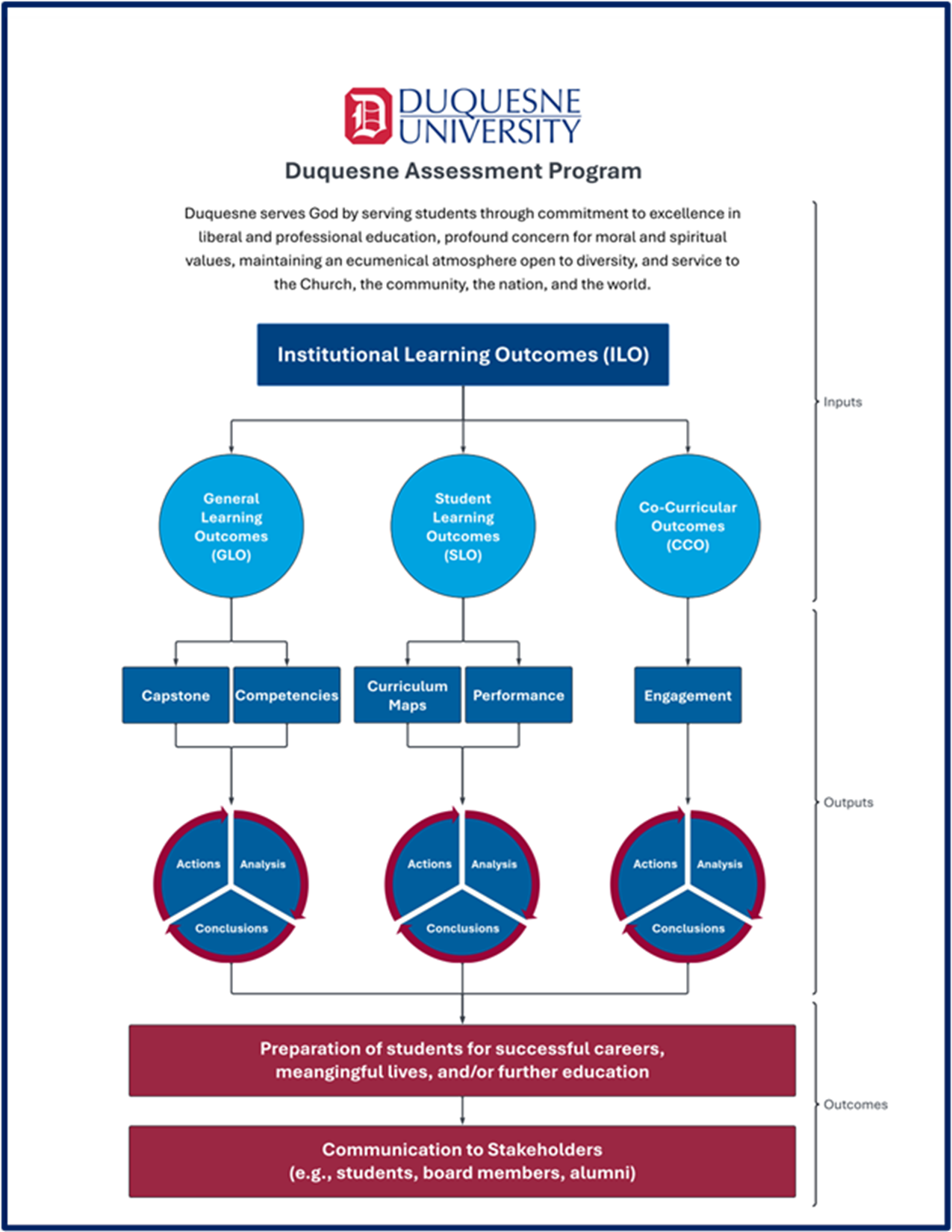Assessment at Duquesne reflects its complex identity as a doctoral high research university and as an American Catholic university rooted in the Spiritan tradition. Through assessment, the University is able to document its progress for achieving its mission and values as embodied in its strategic plan. The Bridges Common Learning Experience, a central distinguishing experience for all undergraduate students at Duquesne, is assessed at the University level.
Academic programs, including all undergraduate, graduate and professional programs, are assessed at the School level. Departmental and program faculty within each discipline develop, implement and review all assessment plans and outcomes. Their findings are shared through annual reports, which describe how the faculty will improve student learning and academic programs.
Reflecting our emphasis on holistic student development, the Duquesne Assessment Plan (DAP) serves as an organizing framework for assessment. The University mission guides the development of institutional learning outcomes (ILOs). As part of the DAP, the ILOs link to general learning outcomes (GLOs) and program-level learning outcomes.


